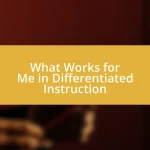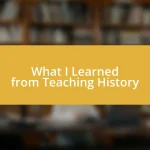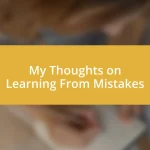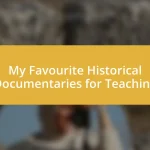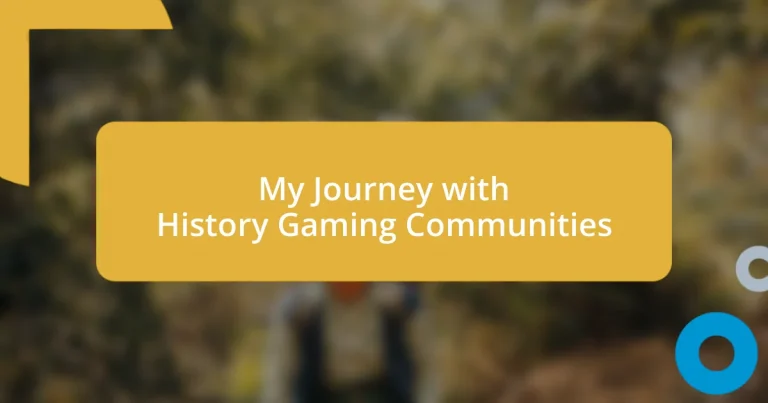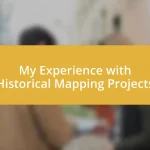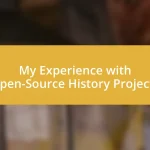Key takeaways:
- History gaming communities foster emotional connections, allowing gamers to share insights, strategies, and a passion for historical narratives.
- Engaging with community events and contributing content enhances the gaming experience, promotes collaboration, and builds a sense of belonging.
- Building lasting connections online through discussions and shared experiences can transform casual interactions into meaningful friendships, enriching both gaming and historical understanding.
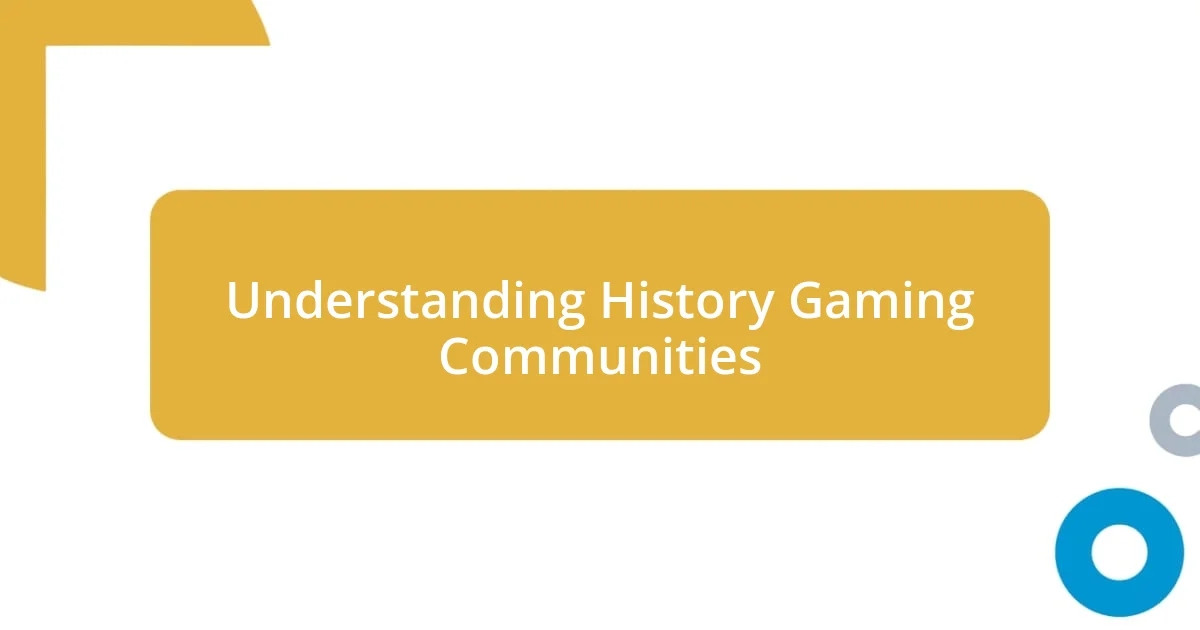
Understanding History Gaming Communities
History gaming communities thrive on a shared passion for exploring the rich, complex narratives of the past. I remember the first time I joined a forum dedicated to a strategy game set in medieval Europe; it was electrifying to connect with others who dissected every battle and political maneuver like it was a living history lesson. Isn’t it fascinating how these digital spaces allow us to relive history through gameplay while engaging with others who share our curiosity?
These communities serve not just as platforms for gaming but also as vibrant hubs for discussion and learning. I often find myself scrolling through discussions that range from historical accuracy in games to the ethical implications of certain narratives. It makes me wonder—do we see these games as mere entertainment, or do they influence our understanding of history in profound ways?
Moreover, the emotional connection within these communities is undeniable. When I crafted history-inspired mods for games, the feedback and camaraderie from fellow gamers made me feel part of something bigger. It’s a reminder that gaming can transcend entertainment, fostering friendships and sparking dialogue about our shared histories.
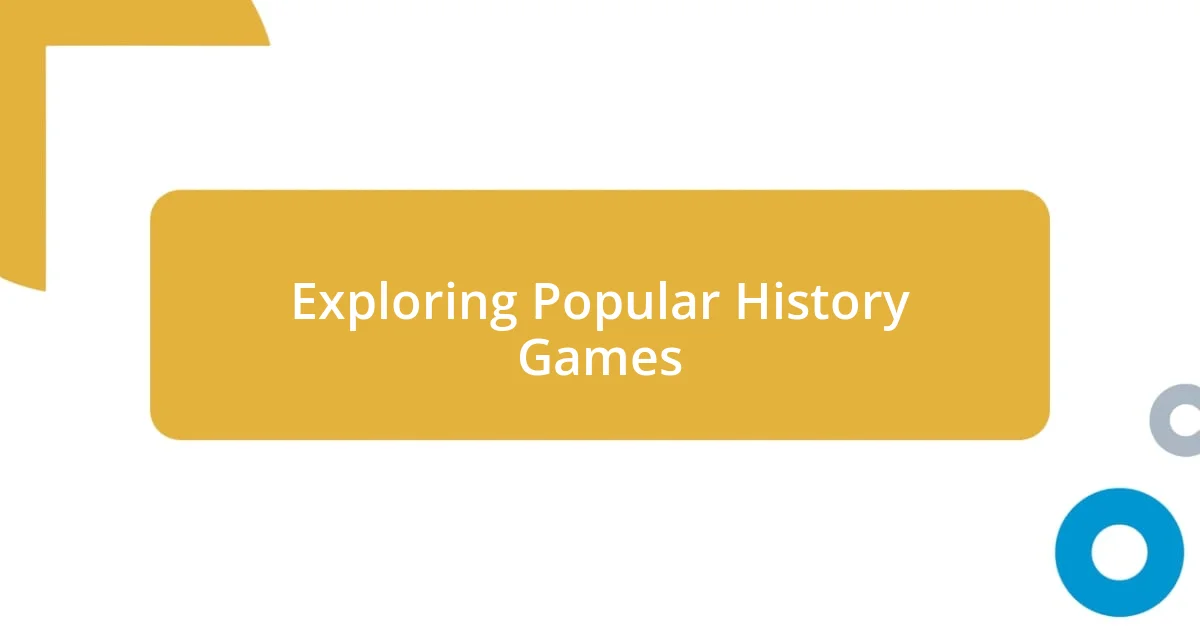
Exploring Popular History Games
Exploring popular history games offers a window into how various eras can be experienced through interactive gameplay. One title that stands out for me is “Crusader Kings III.” This grand strategy game immerses players in the complex politics of the medieval period, where every decision made can alter the course of history. I distinctly remember planning my first crusade; the mix of anxiety and excitement felt like being on an actual historical journey.
Another fascinating title is “Assassin’s Creed Valhalla,” which beautifully melds history with mythology. As I navigated the stunning landscapes of England during the Viking Age, I couldn’t help but marvel at how the game developers incorporated so many historical details into their storytelling. It made me reflect on history’s legacy—not just as a series of events, but as stories about the people who lived them.
Then there’s “Civilization VI,” a classic that brings together various civilizations to compete for global dominance throughout different eras. When I played, I found myself getting deeply invested in my civilization’s growth and the decisions that shaped its trajectory. I still recall the exhilaration of outsmarting rival leaders, realizing that history isn’t just about the victories, but also about the lessons learned from failures.
| Game Title | Era/Theme |
|---|---|
| Crusader Kings III | Medieval Politics |
| Assassin’s Creed Valhalla | Viking Age |
| Civilization VI | Global Civilization Development |
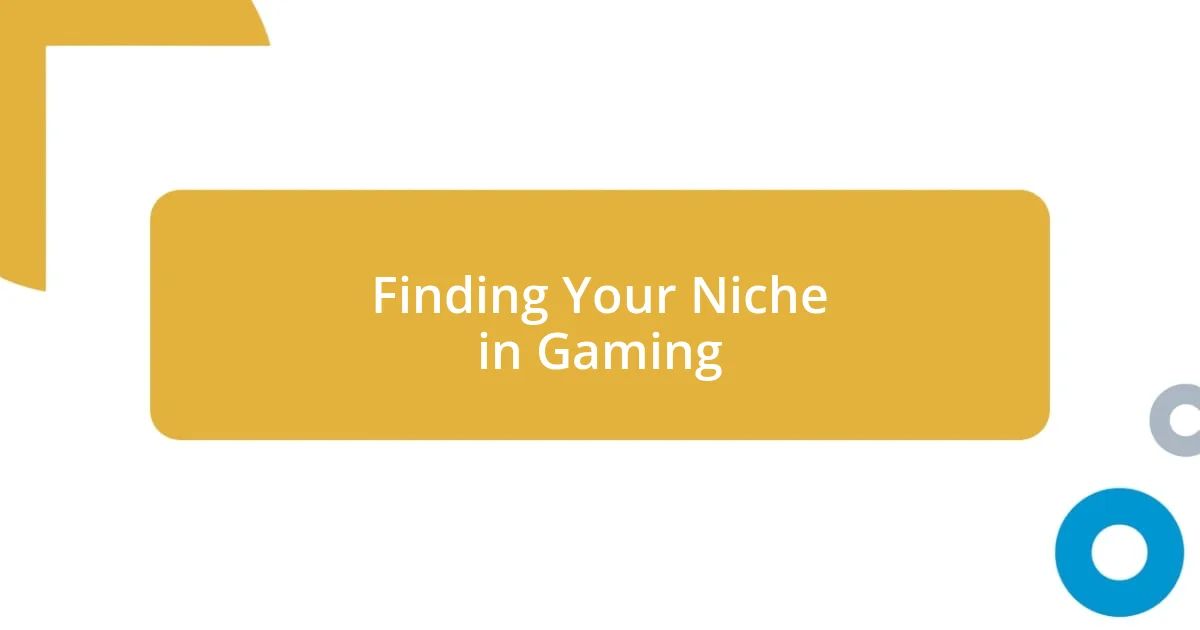
Finding Your Niche in Gaming
Finding your niche in gaming can be a personal and rewarding journey. When I first dipped my toes into historical gaming, I was captivated by how much depth these games could offer. I realized that it wasn’t just about playing; it was about immersing myself in the stories and contexts of the eras. I remember discovering a small online community focused on the American Civil War games. Sharing strategies and discussing the nuances of that period with others really sparked my interest.
- Think about what historical period excites you most.
- Explore different genres that feature historical elements, like strategy, role-playing, or simulation.
- Engage with forums and social media groups to connect with others who share your interests.
- Try participating in modding communities where you can create or share content that reflects your unique perspective.
- Attend gaming events or local meetups to broaden your understanding and meet like-minded individuals.
Identifying what excites you about history can also lead to discovering which games align with your passions, enhancing your gaming experience. Ultimately, your niche is where your interests meet the gaming universe, creating a fulfilling space for exploration and connection.
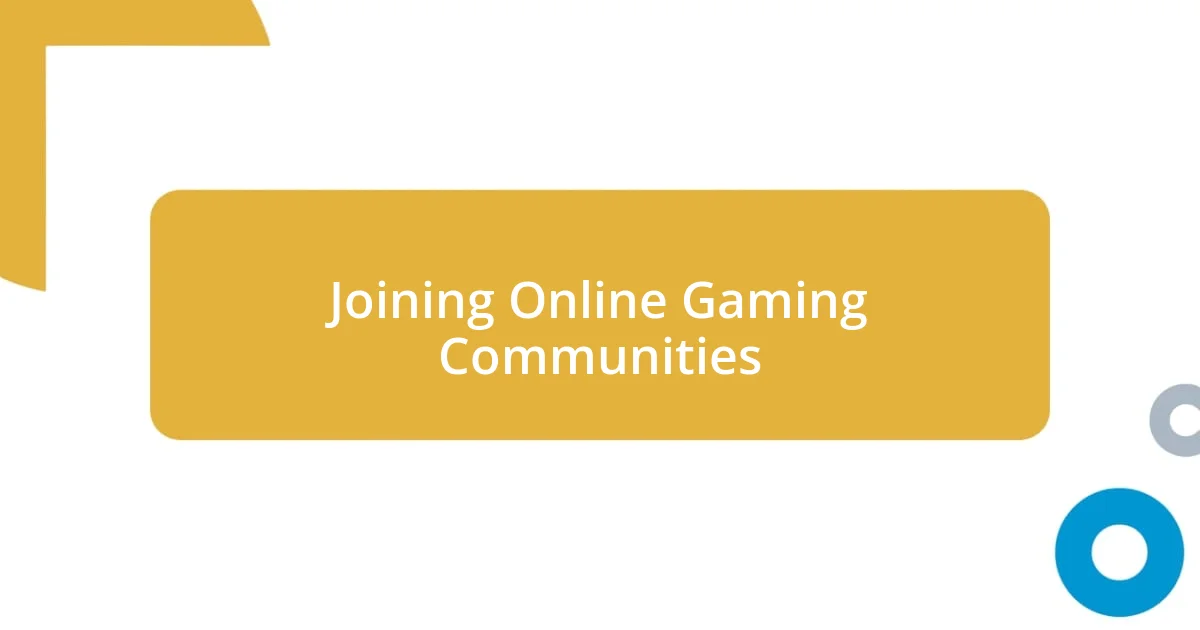
Joining Online Gaming Communities
Joining online gaming communities can truly transform the gaming experience. I remember the first time I participated in a historical gaming forum. It was exhilarating to exchange strategies and insights with fellow enthusiasts. The excitement of sharing discoveries about gameplay mechanics or historical accuracy made me feel like I was part of something larger than myself.
As I engaged in various communities, I noticed how different platforms offered unique vibes. For instance, some groups were more casual and fun, while others focused on in-depth discussions that delved into historical contexts. I often found myself contemplating—how could mere gameplay spark such passionate exchanges? The answer seems to lie in our shared appreciation for history. Each discussion felt like a journey through time, enhancing my love for both gaming and history.
Additionally, connecting with other players motivated me to dive deeper into my favorite titles. I recall being inspired by a fellow gamer’s strategy guide that led me to explore “Total War: Rome II” in ways I never considered before. It opened up avenues for collaboration and creativity that I didn’t anticipate. Isn’t it fascinating how uniting with others can elevate our gaming experience, pushing us to learn and discover more? That’s the beauty of being part of online gaming communities.
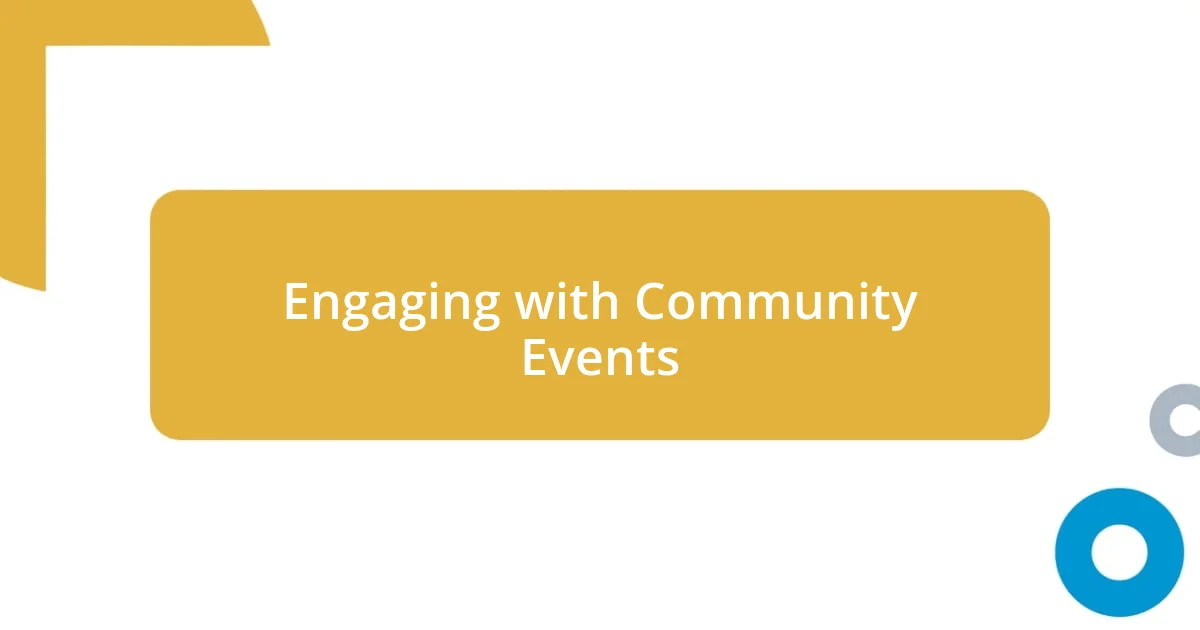
Engaging with Community Events
Engaging with community events can be a game-changer in your historical gaming journey. I recall my first virtual event, where I genuinely felt the energy flow through the screen. The developers hosted a Q&A session, and I couldn’t resist raising my hand to ask about the historical accuracy of a specific element in a game. The thrill of that interaction—knowing my question mattered and was answered—was unforgettable. Isn’t it invigorating to feel your voice is heard in a community?
As I participated more in game launches and community challenges, I discovered how these events fostered genuine connections. One particular event featured a multiplayer tournament focused on historical battles, which was both competitive and fun. While strategizing with my teammates about how to outmaneuver the opposing side, I felt a strong camaraderie that expanded my circle of friends. The thrill of collaboration always reminded me that gaming isn’t just about personal achievement; it’s about building relationships through shared challenges.
I often think about the emotional highs of these community gatherings. Each event left me with a sense of accomplishment and a renewed passion for the games I loved. Whether it was learning a new strategy or simply vibing with fellow gamers, those moments enhanced my appreciation for the history woven into these digital worlds. I found that engaging with community events opened doors to experiences that I could have never encountered solo. What about you? Have you ever walked away from an event feeling inspired?
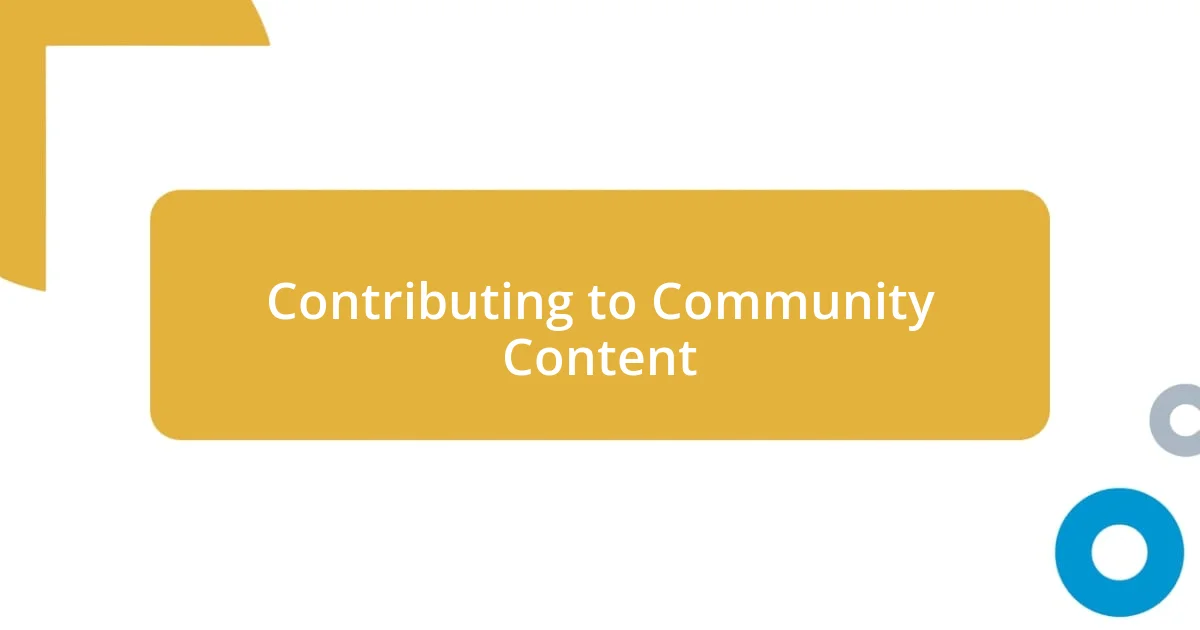
Contributing to Community Content
Contributing to community content has been one of the most rewarding aspects of my journey in gaming. Whether it’s writing detailed historical analyses or creating guides, I’ve always felt a sense of ownership when sharing my insights. The first time I shared a video tutorial on a strategy I developed in “Civilization VI,” the feedback from viewers was incredible. Their questions and suggestions motivated me to refine my approach, illustrating how collaboration can enhance not only our understanding but also our passion for the game.
Sometimes, I think about the emotional connections we build through shared content. I once collaborated with a group to produce a podcast episode that focused on the historical accuracy of our favorite titles. The joy of discussing our interpretations and hearing others’ perspectives made me realize how deeply engaged I had become. It’s astounding how a simple idea blossoms into a community project, sparking creativity and learning for everyone involved. Have you ever wondered how your voice could steer discussions within your community?
I believe that contributing to community content not only enhances our knowledge but also helps forge a sense of belonging. For example, I remember when I participated in editing a collaborative wiki for a game I loved. Seeing my edits help shape the narrative and enrich the historical context for other players felt like leaving my mark on the community. It’s moments like these that solidify the idea that we’re all part of something larger—a mosaic of shared experiences and knowledge, driven by our mutual love for history and gaming.
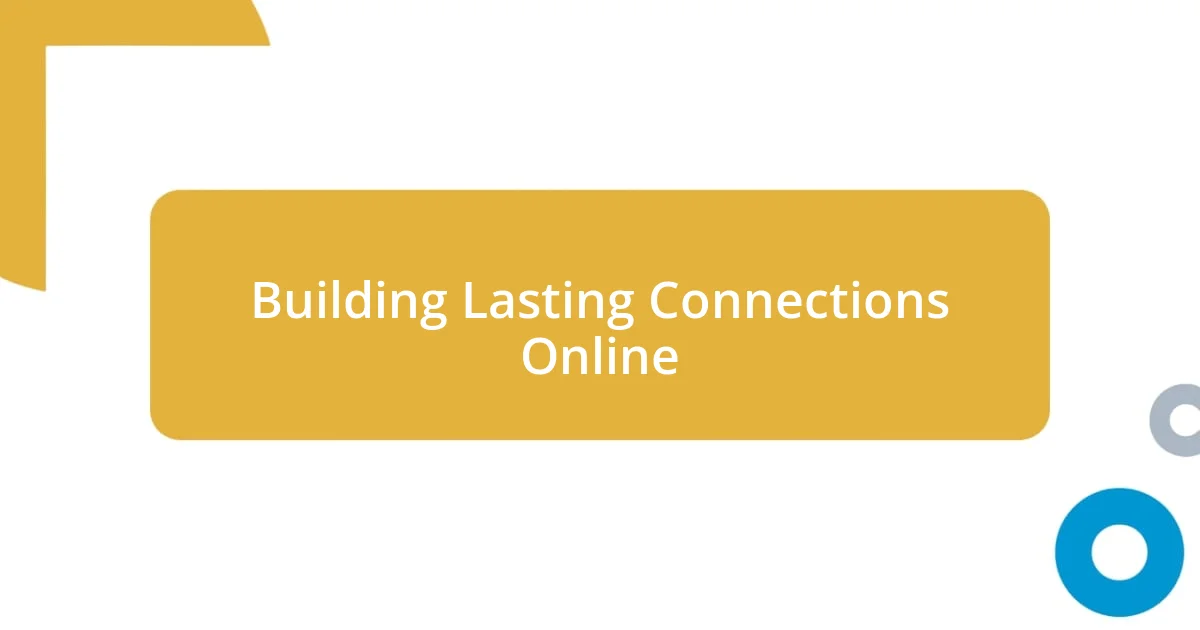
Building Lasting Connections Online
Building connections online in gaming communities has an extraordinary potential that can’t be overstated. I remember joining a forum dedicated to historical strategy games. At first, it felt a bit daunting as a newcomer, but when I shared my thoughts on a recent game update, fellow members welcomed my input with enthusiasm. That initial exchange turned into ongoing conversations, and suddenly, I found myself part of a network that thrived on shared interests and mutual respect. Have you ever stepped into a forum and felt that instant sense of belonging?
In many instances, I’ve discovered that these connections deepen through regular interactions. One memorable experience was during a late-night livestream where my friends and I teamed up to discuss historical narratives within our favorite games. We laughed, debated, and even got caught up in some friendly rivalries, but what stood out was the collective excitement. It’s amazing how a shared passion can ignite these conversations, right? Those late hours created a bond that turned casual acquaintances into lifelong friends.
Moreover, participating in a Discord group for historical gamers really broadened my understanding of different perspectives. I still cherish the moments when members shared personal anecdotes related to historical events or their experiences playing our favorite games. Those stories added layers to our discussions and made the conversations vibrant and meaningful. It often strikes me how these connections amplify our passion for gaming and history, reminding us that behind each screen is a person with rich insights. Isn’t it remarkable how these exchanges can transform our individual journeys into a collective adventure?




